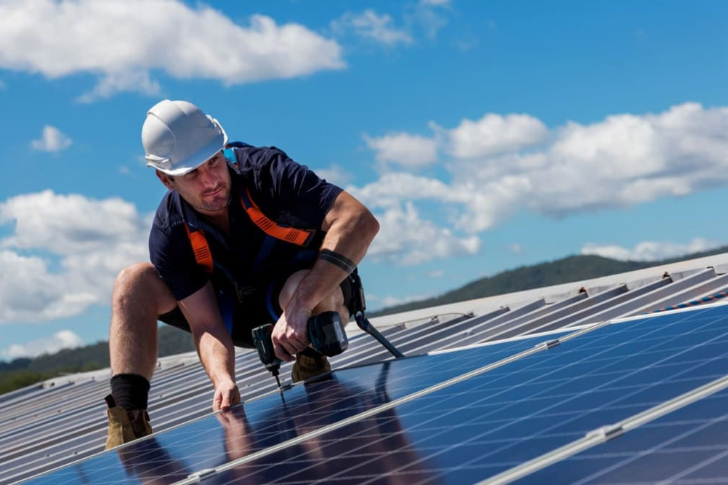The sun, a boundless source of clean energy, has long held the promise of powering our lives sustainably. In recent years, advancements in solar panel technology, coupled with rising energy costs and growing environmental awareness, have made solar energy a viable and increasingly popular option for homeowners and businesses alike. Solar panels, converting sunlight into electricity, offer a compelling blend of economic savings and environmental responsibility.

Understanding the Technology Behind Solar Power
Solar panels, or photovoltaic (PV) modules, are composed of semiconductor materials, typically silicon, that convert sunlight into direct current (DC) electricity. When sunlight strikes the panel, it dislodges electrons, creating an electrical current. An inverter then converts this DC electricity into alternating current (AC) electricity, which can be used to power homes and businesses.
The efficiency of solar panels has steadily improved over time, making them more effective at converting sunlight into electricity. Modern panels boast higher efficiency ratings and longer lifespans, further enhancing their economic viability and environmental benefits.
The Economic Advantages of Solar Panel Installation
Investing in solar panels offers a multitude of economic advantages, making it a financially sound decision for many:
- Reduced Energy Bills: Solar panels significantly reduce or eliminate reliance on traditional grid electricity, leading to substantial savings on monthly energy bills.
- Return on Investment (ROI): The initial investment in solar panels is offset by long-term energy savings, resulting in a favorable return on investment.
- Increased Property Value: Homes with solar panels are often more attractive to potential buyers, increasing property values.
- Government Incentives and Tax Credits: Many governments offer incentives, tax credits, and rebates to encourage solar panel adoption, reducing upfront costs.
- Net Metering: Net metering programs allow homeowners to sell excess solar energy back to the grid, further reducing energy costs.
- Energy Independence: Solar panels provide a degree of energy independence, reducing reliance on fluctuating energy prices and grid outages.
The Environmental Benefits of Solar Energy
Beyond the economic advantages, solar panels offer substantial environmental benefits:
- Reduced Carbon Emissions: Solar energy is a clean and renewable energy source that produces no greenhouse gas emissions, reducing our carbon footprint.
- Reduced Air Pollution: Solar panels do not produce air pollutants, improving air quality and reducing respiratory health problems.
- Reduced Water Consumption: Solar energy requires minimal water for operation, unlike traditional power plants that consume vast amounts of water.
- Reduced Reliance on Fossil Fuels: Solar energy reduces our reliance on fossil fuels, which are finite resources and contribute to environmental degradation.
- Sustainable Energy Source: Solar energy is a sustainable and inexhaustible resource, ensuring long-term energy security.
Factors Influencing Solar Panel System Costs
The cost of a solar panel system varies depending on several factors, including:
- System Size: Larger systems with more panels cost more than smaller systems.
- Panel Quality and Efficiency: Higher-quality, high-efficiency panels are more expensive.
- Installation Complexity: Complex installations on challenging roofs may increase labor costs.
- Inverter Type: Different inverter types have varying costs.
- Location: Solar panel costs may vary based on location due to labor costs and permitting fees.
- Incentives and Rebates: Available incentives and rebates can significantly reduce upfront costs.
Table 1: Estimated Costing for Residential Solar Panel Systems (Installed, Before Incentives)
| System Size (kW) | Average Cost Range (USD) |
|---|---|
| 3 kW | $9,000 – $15,000 |
| 5 kW | $15,000 – $25,000 |
| 8 kW | $24,000 – $40,000 |
| 10 kW | $30,000 – $50,000 |
Note: These are estimated ranges and actual costs can vary based on location, panel quality, and installation complexity.
Table 2: Estimated Annual Savings from Residential Solar Panel Systems
| System Size (kW) | Average Annual Savings (USD) |
|---|---|
| 3 kW | $500 – $1,500 |
| 5 kW | $800 – $2,500 |
| 8 kW | $1,200 – $4,000 |
| 10 kW | $1,500 – $5,000+ |











